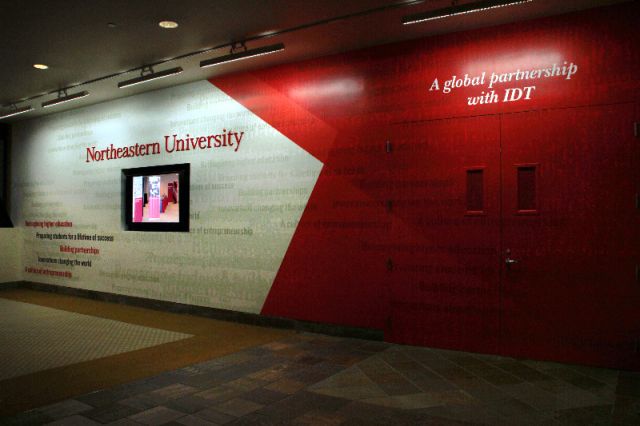By Sara Tucker, managing editor
With recent focus on developing opportunities for science, technology, engineering and math (STEM) education, Northeastern University is slated to open a new space in Silicon Valley. The satellite campus, coined Northeastern University – Silicon Valley, will include an 8,000-square-foot space owned by Integrated Device Technology (IDT), set to open in the fall, as well as several smaller hubs in major companies around the city that will open at a later date.
The IDT space is located in the company’s corporate headquarters in San Jose, and the programs offered are “aimed at reaching mid-career workers,” according to the Boston Globe. Mid-career workers are those who have advanced past entry-level employment, but are not nearing retirement.
All students currently enrolled in the initial program are IDT employees, the company’s president, Greg Waters, told Bloomberg Business.
While the campus is located within IDT’s headquarters, not all classes will be taken there. Classes offered will be taught in “online and hybrid formats, enabling students to combine the convenience and power of online learning with the benefits of face-to-face instruction,” according to the university.
Based on this initial Silicon Valley outreach, Northeastern will eventually partner with other companies to help employees stay up-to-date on what their organizations need and want. The university also hopes to help students who are interested in breaking into the STEM field get the education they need to jump start a career.
The San Jose, Calif. campus will offer a master’s degree in engi-neering man-age-ment as well as two cer-tifi-cate pro-grams in data sci-ence and tech-nology project management.
While it is unlikely that programs for undergraduates will be offered, students in Boston can look forward to the possibility of working for the companies Northeastern partners with either on co-op or as full-time employees post-graduation.
Despite these potential opportunities, not all students are happy with the direction the university is going – away from Boston.
“I think it’s kind of a waste of money,” senior political science major Elizabeth Torres said. “I wish they would focus on their Boston campus … rather than spending it abroad. I would rather they donated a lot of money to increasing financial aid. They keep on raising tuition. Some of their priorities on creating a world-class university are out of line.”
Torres isn’t the only student with this concern, according to The News’ poll this week. Twenty-one percent of students reported they don’t understand the benefits of satellite campuses, and another 38 percent said they would prefer the university spend money on improving resources and academics associated with the Boston-based main campus better.
Payments associated with the California program will bring increased funding to the university, however, which could potentially be used to better infrastructure and programs in Boston.
“Tuition for the new venture is $21,680 for a graduate certificate in data science, $10,692 for a graduate certificate in [technology] project management and $43,328 for a master’s degree in engineering management,” the Boston Globe reported.
While it is likely that the money the California campus earns will go to increasing the number and size of satellite hubs on the West Coast, students recognize the potential opportunities this could bring for undergraduates.
Twenty-six percent of students who responded to The News’ poll reported looking forward to increased co-op opportunities, and 13 percent are excited for the potential to be “double Huskies,” earning both an undergraduate and a masters degree from Northeastern, in California.
Freshman international affairs major Kevin Hutsell is one student who sees the expansion as beneficial and is looking to take advantage of additional locations and programs offered by Northeastern.
“I think the university expanding into California is a great idea,” he said. “I like that students have an increased opportunity to study in various locations.”
Photo courtesy IDT















